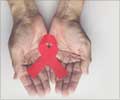Australia's resources boom is contributing to a rise in HIV infections in the nation as cashed-up miners contract the disease during trips to Asia and Papua New Guinea, an HIV support
Australia's resources boom is contributing to a rise in HIV infections in the nation as cashed-up miners contract the disease during trips to Asia and Papua New Guinea, an HIV support group said Wednesday.
The rate of infection of the human immunodeficiency virus (HIV), which causes AIDS, increased in Australia by five percent during 2007, according to new national statistics.Researchers at the National Centre in HIV Epidemiology and Clinical Research in Sydney found there were 1,051 new HIV diagnoses around the country in 2007, up from 998 in 2006.
Don Baxter, head of the Australian Federation of AIDS Organisations, said while the increase was still mostly among gay men, there were clusters of heterosexual men, including miners and businessmen, contracting the virus.
In Western Australia, where iron ore and natural gas exports are bringing in billions of dollars, there has been a 68 percent increase in HIV infection among heterosexual males over the past three years, he said.
"What we have found in the resource-rich states, the states going through an economic boom... is the emergence over the past three years of pockets of heterosexual men who are becoming infected," he told AFP.
"And a common factor seems to have been them taking holidays in Papua New Guinea... and Thailand and Cambodia or some other Southeast Asian country."
Advertisement
"These guys are in remote locations on very high wages and there are fly-in, fly-out planes to the holiday resorts that are then only three or four hours away," he said.
Advertisement
Baxter also warned gay tourists against risky sex, saying the major Asian cities, including Bangkok, were dealing with "major acute epidemics of HIV infection."
He blamed Australia's underinvestment in HIV prevention programmes for the spike in infections.
"Australia is still doing far better than just about every other country... in terms of containing the epidemic," he said.
"But what we are not doing is reversing the rate of infection and we should be able to do that."
Source-AFP
SRM















